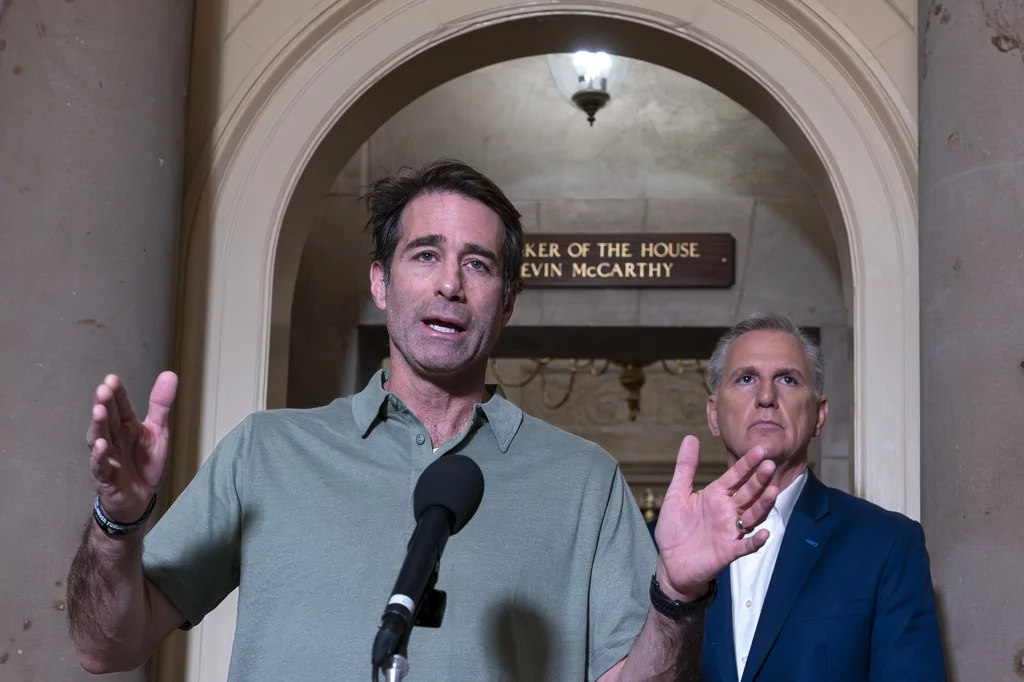
Reps. Garret Graves (R-LA) and Abigail Spanberger (D-VA) overcame resistance from leadership to move legislation through Congress that repeals two long-standing programs affecting Social Security benefits for recipients across the country.
The bipartisan Social Security Fairness Act earned the support of 128 members of Congress on Thursday, enabling it to be brought to the House floor for a vote.
Using a rarely executed legislative tactic called the discharge petition, Graves and Spanberger garnered enough signatures to bypass House Speaker Mike Johnson (R-LA) and move their bill through the lower chamber.
🚨BREAKING: Graves-Spanberger Discharge Petition Reaches 218 Signatures, Enough to Force U.S. House Vote on Bipartisan Bill to Eliminate WEP & GPO. https://t.co/ijB4VA7q5W pic.twitter.com/s3XXrvcjAD
— Rep. Garret Graves (@RepGarretGraves) September 19, 2024
The Social Security Fairness Act of 2023 would repeal two provisions that reduce Social Security benefits for people who receive other benefits, such as a pension from a state or local government. Thelegislation eliminates two programs established in 1983 that the bipartisan duo believes “unfairly” reduce or eliminate Social Security benefits for nearly 3 million people. It would cost $195 billion over the next decade to implement, according to the Congressional Budget Office.
“We will be dogged in making sure the Social Security Fairness Act passes in the U.S. House, passes in the U.S. Senate, and finally gets signed into law,” Graves and Spanberger said in a joint statement.
“On a bipartisan basis, we have taken on something that is completely unjust — that has been going on for over four decades,” Graves said. “People from the very left of Congress to the very, very right that don’t agree on a damn thing, it’s great to see folks uniting and fixing something that’s been unjust.”
Forty-seven Republicans and 171 Democrats support the bill. It had stalled in the House Ways and Means Committee as Johnson appeared unenthusiastic about bringing it up for a vote on the floor.

It marks the second time in recent months that a Republican has bypassed Johnson’s leadership through the discharge petition. Rep. Greg Steube (R-FL) used the procedural tactic in May to push his disaster tax relief bill to the House floor. However, the go-around rarely works. Before this year, the last time a discharge petition worked was in 2015.
While Graves and Spanberger want to eliminate the windfall elimination provision and the government pension offset, other lawmakers and experts have warned a full repeal could backfire.
During a House committee hearing on the Social Security Fairness Act earlier this year, Bipartisan Policy Center chief economist Jason Fichtner conceded that the programs “create an overly complex structure” and needed reform.
But he warned that “fully repealing the WEP and GPO would violate the principles of fairness and equity that these provisions were intended to protect.”
Charles Blahous, a senior research strategist at George Mason University, added that the programs were “necessary features” but that their current forms should be adapted.
CLICK HERE TO READ MORE FROM THE WASHINGTON EXAMINER
Reps. Jodey Arrington (R-TX) and Richard Neal (D-MA) have introduced legislation that would do that. Their bills address “shortcomings” with the WEP and GPO without entirely eliminating the government programs.
The battle for Social Security reforms in the House comes as the topic has become a heated matter of debate throughout the 2024 presidential campaign. Former President Donald Trump recently pledged to end taxes on Social Security benefits should he win reelection. Meanwhile, Vice President Kamala Harris has repeatedly accused Trump of wanting to “cut” the program. There is no evidence to back up her claim.







You need to leave SS alone. You take from never replace what you taken give to illegals who never earned.yahoo